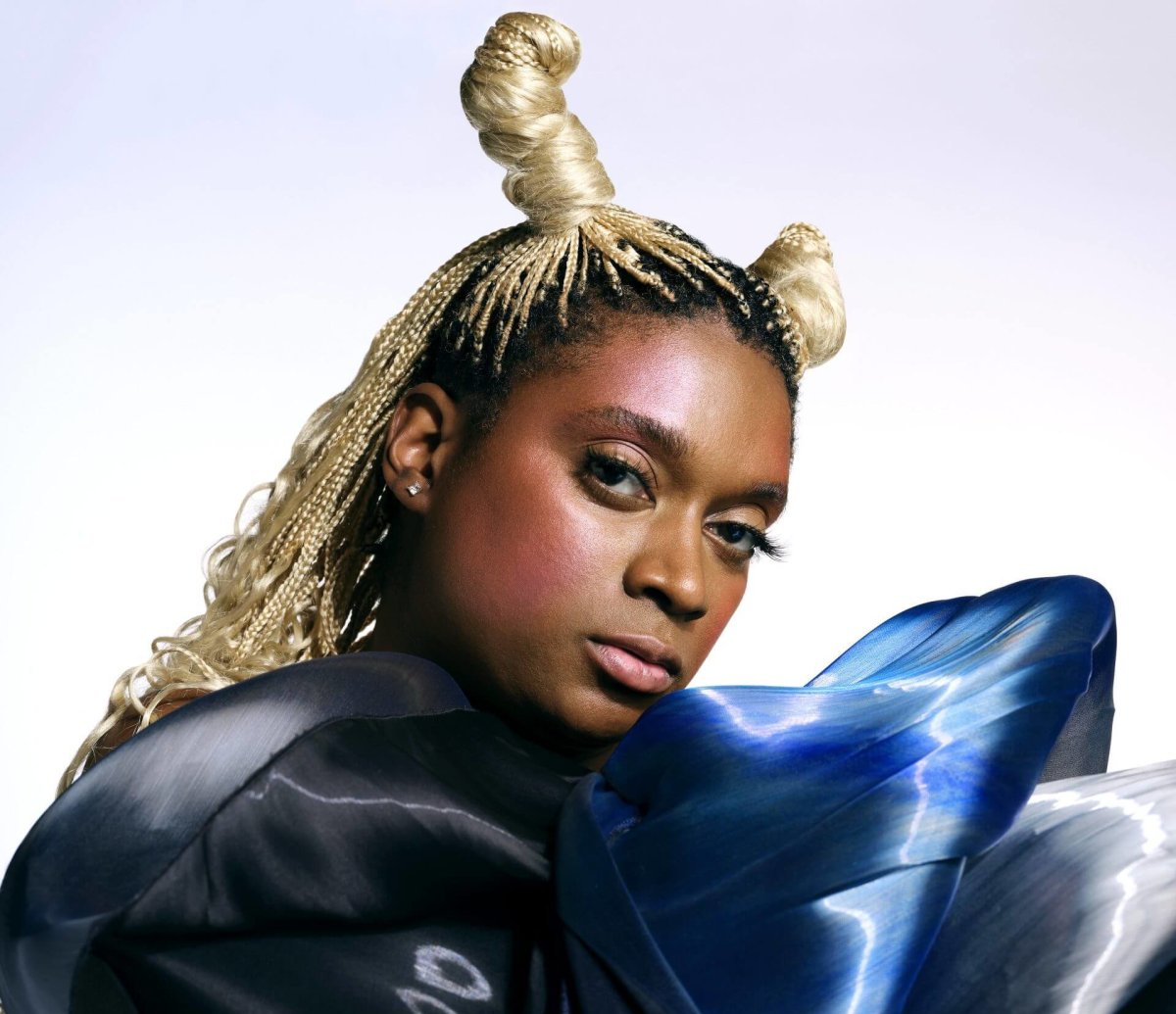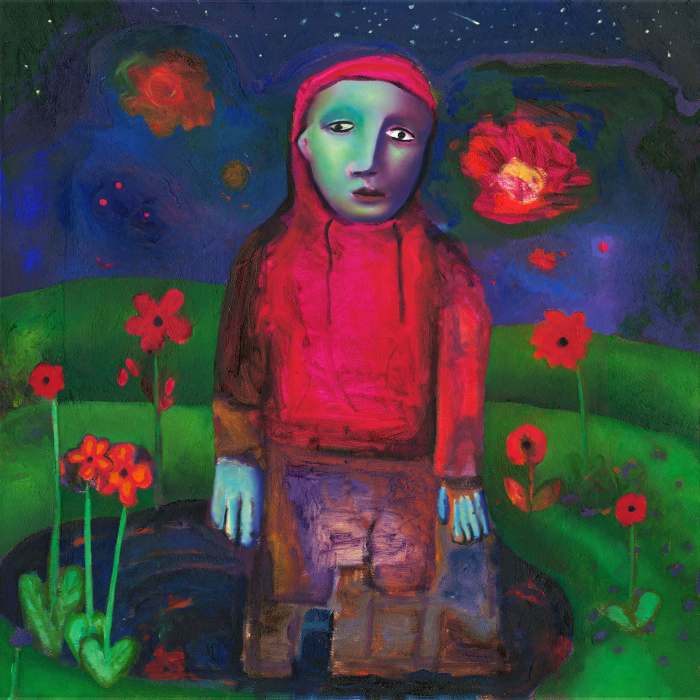Get caught up on new music this month from out LGBTQ artists, including Lotic, Oscar and the Wolf, and Cakes da Killa and Proper Villains.
“Water” by Lotic
A soaring soprano, piano, and harps. Loops of electronic noise and rattling metal. Lotic’s second album, “Water,” rides the thin line between the beautiful and ugly. She creates polyrhythms and new timbres with juxtapositions that, if pulled off without great care and skill, could lead to mere chaos. Lovely melodies jostle with percussive scrapes. “Wet” starts out pretty, with operatic vocals, but halfway through the whole song becomes increasingly distorted. A rumble like a distant construction site becomes louder and louder.
Lotic reaches back to both classical music and early ‘80s industrial, when drumming on metal was a fixture in the genre. “Emergency” brings together breathy vocals, a sudden rush of electronics and fractured percussion. “Come Unto Us” opens with the cry of horns. The production is clear, allowing every element its own place in the mix. All of the layers are carefully defined. While Lotic’s vocals sound open and vulnerable, her production rests on a firm spine of noise.
Classical music and opera have become inspirations for adventurous indie artists like Circuit des Yeux and Lignua Ignota, and “Water” has some elements In common with their music. (For all of them, late Scott Walker lurks in the background.) But the melodramatic rush associated with female opera singers is exchanged for emotions much harder to pin down. The combo of noise and prettiness in Lotic’s music suggests the difficulty of preserving peace of mind in a brutal world, as its melodic elements threaten to get crushed over and over. But they also persist – the album never gives into raw aggression. The human element always persists alongside the machine. (The album’s opening sound is a heartbeat, generated by a bass drum.) Lotic has leveled up from her 2018 debut “Power,” making one of this year’s best, most inventive albums. Something great is about to emerge out from the water.
“The Shimmer” by Oscar and the Wolf
If you’re an American pop fan, you’ve likely never heard of Oscar and the Wolf, but the Belgian singer, whose real name is Max Colombie, is a star in Europe and the Middle East. His third album, “The Shimmer” offers bright, comfortable music. Although it was released in October, it’s no wonder that the videos for “Livestream” and “Oliver,” filmed last summer, show Oscar and the Wolf lounging with women around a pool and dancing in a field. The vibe is similar to Harry Styles’ “Lights Up” or “Watermelon Sugar.”
But Oscar and the Wolf’s production is both overtly slick and cheap. His album’s sequencing buries its best, most energetic songs in the middle. “The Shimmer” is filled with digital clones of the gated snare drum Phil Collins popularized in the early ‘80s, but they don’t have any crunch. His music gets more compelling the further it gets from cookie-cutter niches, but the album’s too laid back for its own good. “Livestream,” which opens and closes with a simulation of a warped tape and rides a monstrous synthesizer hook, is the only real stand-out. The soft instrumental “The P.I.C.” suggests early Talk Talk performing smooth jazz. Continuing in the same mood, the title track is a ballad that ends the album by taking five minutes to gradually fade out. If “The Shimmer” is a reference to the alien presence in Jeff VanDerMark’s novel “Annihiliation” (and Alex Garland’s film adaptation), the song’s warm-blanket approach keeps emotion at a distance.
“Muvaworld Vol. 2” by Cakes da Killa and Proper Villains
In Cakes da Killa’s world, the dance floor is not a safe space. The gay rapper’s music suggests an ultimate triumph without ignoring the world outside. The first line and chorus of its opening track are “this is for faggots,” both acknowledging bigotry and reclaiming the slur as a mark of community. (Look at the song’s title, “Stoggaf,” backward.) His series of eps, now in its third installment, with producer Proper Villains revives the short-lived sub-genre of hip-house. While its late ‘80s heyday produced a few high points (lesbian rapper Queen Latifah’s “Come Into My House,” the Jungle Brothers’ “I’ll House You”), rapping over house music turned into a gimmick that quickly faded. Unfortunately, much of its evanescence had nothing to do with music. As hip-hop grew increasingly macho and moved away from its roots as dance music, rappers didn’t want to engage with a genre created by gay men. At the time, Public Enemy’s Chuck D. criticized house music in explicitly homophobic terms.
Cakes da Killa brings the toughness of hip-hop to house music beats. “What’s the World” begins with his vocals over hard kick drums. The fact that it’s much faster than contemporary rap contributes to an aggressive sound. He’s also as frank about sex as his hetero counterparts. “Taste Test” borrows a metaphor for Lil Kim’s “How Many Licks”- it’s not about his cooking hobby. Like a DJ set, the final song “Spinning” slows things down and lets us go out on a benevolent note. Cakes tones his vocals down to an ASMR whisper, while singer Sam Sparro sings about being “lost in a dance.”
Cakes da Killa is one of the most talented out LGBTQ rappers to ever bless the mic. But he only has one song with more than a million Spotify streams. Alas, he’s been working hard for years with little recognition. Even an appearance on the 2019 Netflix competition show “Rhythm & Flow” did not help him much; despite his track record, the judges treated him like a novelty act who just started rapping. Getting major label distribution, ten years after his first mixtape, should have been an event. Instead, Warner Music gave “Muvaworld Vol. 2” zero promotion.


































